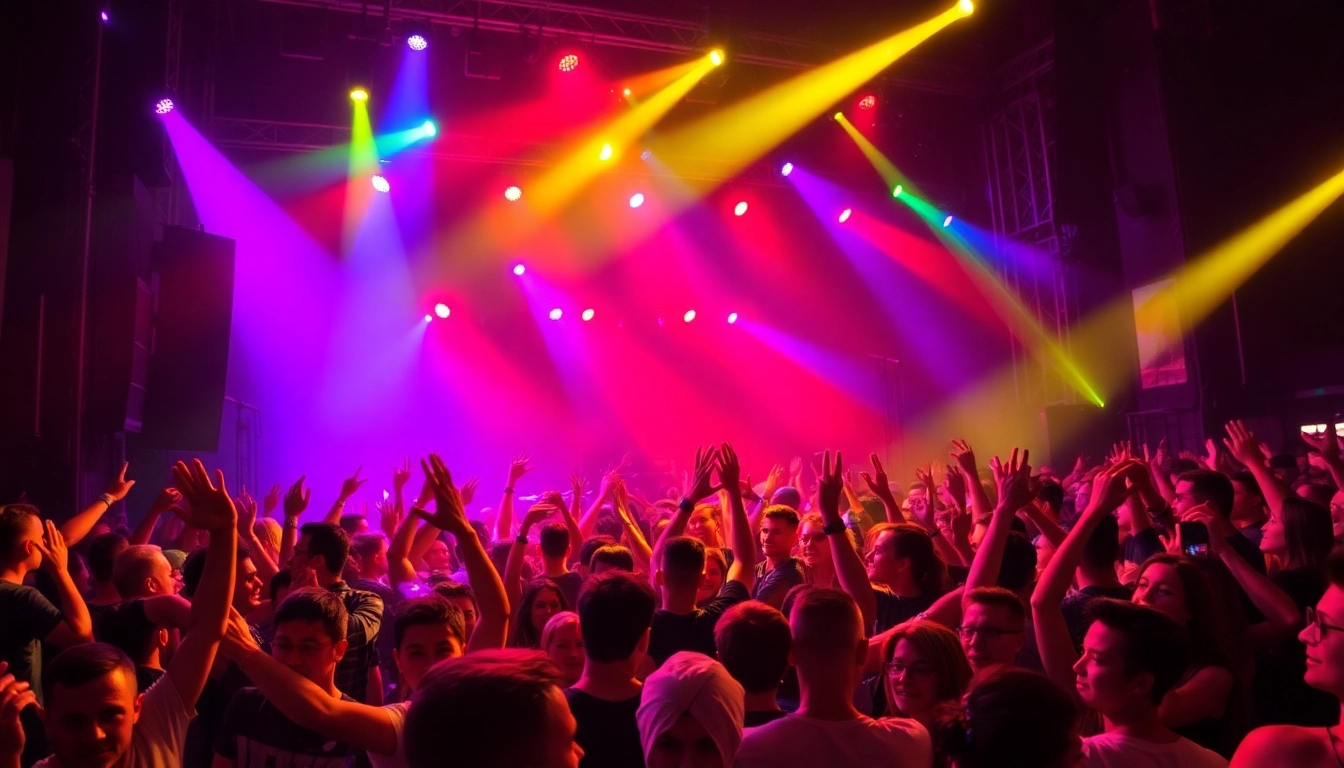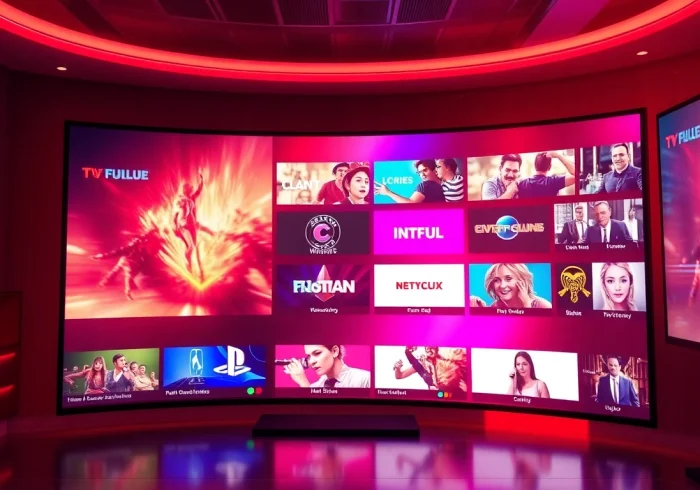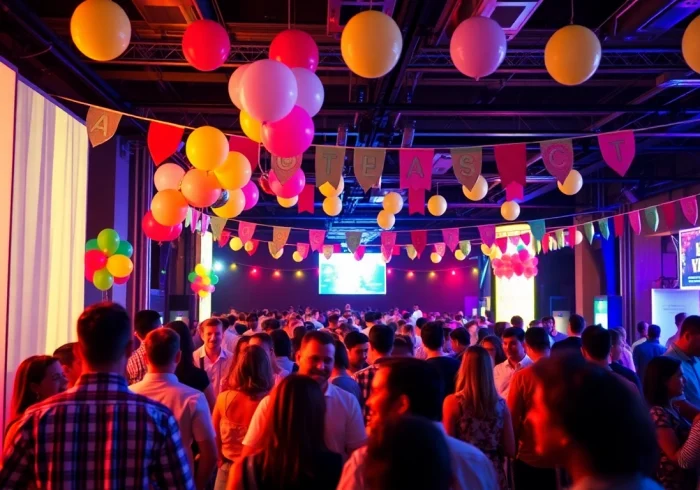Understanding Live Music Fans
The Demographics and Psyche of Concert Goers
Live music is a universal language that transcends boundaries, resonating deeply with individuals across diverse demographics. Analyzing the demographics of Live Music Fans reveals a vibrant tapestry of age groups, backgrounds, and cultural influences. Research shows that a significant portion of concert-goers falls within the 18-34 age bracket, known for their enthusiasm and willingness to embrace new experiences. However, the allure of live music extends beyond youth; older audiences, particularly those aged 35-54, also play a crucial role in the concert-going populace, bringing with them a different set of expectations based on their life experiences and musical nostalgia.
Psychologically, the passion for live music stems from the emotional connection that fans experience. Concerts evoke powerful feelings of joy, nostalgia, and community. This psychological need for social connection is amplified in settings where live performances are at play, offering fans a chance to bond not only with the artists but also with fellow enthusiasts. Furthermore, the communal atmosphere experienced at concerts fosters a sense of belonging, which is particularly appealing in today’s often fragmented social landscape.
Key Characteristics that Define Live Music Fans
Live music fans are characterized by their unique traits that set them apart from casual listeners. One primary characteristic is their loyalty; fans often have a deep emotional investment in their favorite artists, leading to repeat attendance at concerts and the sharing of experiences through word-of-mouth or social media. This loyalty is often driven by the relatability of artists’ music and the stories behind their songs, which resonate with fans on a personal level.
Another defining trait is their adventurous spirit. Live music fans frequently seek out not only their favorite bands but also new genres and emerging artists. This exploration fosters a culture of discovery, where fans can be found at shows that range from intimate acoustic performances in small venues to large-scale festivals featuring multiple acts across various genres. Moreover, they often showcase a sense of open-mindedness, willing to embrace diverse musical styles and cultures.
The Importance of Experience for Live Music Fans
For live music fans, the experience of attending a concert is as vital as the music itself. The ambiance, crowd dynamics, and overall atmosphere contribute to their enjoyment and lasting memories. Fans crave immersive experiences that engage not just their auditory senses but all their faculties—sight, touch, and even taste. This is where event organizers must focus to deliver high-quality experiences that resonate with this audience.
Additionally, the transition to virtual and hybrid events has reshaped expectations. Fans now look for enhanced engagement elements, such as behind-the-scenes access, interactive experiences, and exclusive content that heightens their connection to the performance. This evolution emphasizes the need for artists and event producers to prioritize experiential innovations that cater to the desires of live music aficionados.
Identifying Their Preferences
What Live Music Fans Seek in Concerts
Understanding what live music fans seek in concerts can help organizers tailor their events to better meet audience expectations. First and foremost, fans prioritize the quality of the music and performance. They want to see artists deliver their music authentically, connecting with the audience through dynamic shows that include elements like live improvisation, audience interaction, and visual effects.
Moreover, fans value the social aspect of attending concerts. They seek an environment where they can create memories with friends or meet like-minded individuals. Being part of a crowd that shares similar tastes enhances the experience significantly. Additionally, accessibility—both physical and financial—is crucial; affordable ticketing options, venue accessibility, and well-planned transport solutions can make or break an event for many fans.
Genres That Attract Live Music Fans
The music genre draws a distinct crowd, and understanding which genres attract live music fans is essential for promoters. Popular opinions suggest that rock, hip-hop, and electronic dance music (EDM) consistently draw the largest crowds. Rock concerts often generate intense emotional experiences, while hip-hop shows can deliver dynamic energy complemented by visual spectacles. Meanwhile, EDM festivals have transformed the concert landscape into immersive environments that attract a younger, vibrant audience.
However, niche genres, such as indie folk or world music, have carved out their own dedicated fan bases. These genres often evoke a sense of intimacy, allowing fans to engage in a more personal and meaningful way with artists and fellow attendees. Thus, understanding this spectrum highlights the importance of curating events that cater to both mainstream and niche musical preferences.
Unique Experiences Desired by Live Music Fans
Today’s live music fans are not just looking for a show; they want an experience that transcends the ordinary. Unique experiences can include pre-show meet-and-greets with artists, backstage tours, or exclusive merchandise that adds value to their concert attendance. Moreover, fans are increasingly inclined towards festivals that offer not just music, but holistic experiences such as gourmet food options, art installations, and wellness activities.
As concert culture shifts towards creating multi-faceted experiences, organizers should leverage technology to enhance fan engagement. For instance, augmented reality (AR) applications can create interactive elements that complement live shows, allowing fans to engage with their environment like never before. By incorporating these unique experiences, organizers can significantly enhance fan satisfaction and drive higher attendance.
Engagement Strategies for Live Music Fans
Creating Memorable Experiences for Fans
To engage live music fans effectively, creating memorable experiences is paramount. This can be accomplished through thorough planning and implementing experiential marketing tactics. For example, facilitating immersive pre- and post-show events or themed parties can enhance the fan experience beyond just attending the concert.
Organizers should prioritize the use of technology to foster interaction, such as interactive apps that allow fans to share their experiences live during the concert. Gamification strategies, like in-app contests, can further engage fans and keep them connected during and after the event. Moreover, personal touches, such as personalized invitations or special recognition for loyal fans, can significantly elevate the overall experience.
The Role of Social Media in Engaging Live Music Fans
In today’s digital age, social media plays a critical role in engaging live music fans before, during, and after events. Platforms such as Instagram, Twitter, and TikTok allow fans to interact with artists and share their concert experiences instantly. By leveraging social media marketing techniques, promoters can create buzz around events, enable fan-generated content, and foster a sense of community among attendees.
Live-streaming is another powerful tool that connects fans who cannot attend physically, offering them glimpses into the concert and exclusive content that keeps the excitement alive online. Utilizing hashtags and challenges can amplify engagement among fans, encouraging them to share their unique perspectives and visuals related to the event.
Event Marketing Techniques to Attract Live Music Fans
Attracting live music fans requires effective event marketing strategies. A multi-channel marketing approach is often the most successful, combining email campaigns, social media promotions, and influencer partnerships to maximize reach. By identifying key audience segments, marketers can create tailored messages that resonate with the specific interests of each group. For instance, targeting younger audiences through TikTok engagements while reaching older fans through Facebook ads can diversify attendance and increase overall ticket sales.
Collaborating with local businesses to create cross-promotions or ticket bundles can also enhance visibility. For example, partnering with local bars or restaurants to offer discounts for concert-goers can incentivize attendance while boosting local economy support. This approach fosters a sense of community among the fan base and creates a more holistic experience surrounding the live music event.
Measuring Engagement with Live Music Fans
Key Performance Indicators for Fan Engagement
Measuring engagement with live music fans is crucial for understanding what works and what needs improvement. Key Performance Indicators (KPIs) that will provide insight into fan engagement include ticket sales, merchandise sales, social media engagement rates, and post-event surveys. Analyzing ticket sales trends can provide an understanding of which genres or artists are attracting fans. Similarly, merchandise sales provide a valuable metric for gauging fan loyalty and excitement.
Social media engagement rates—likes, shares, comments, and overall reach—offer insights into how effectively the marketing campaign resonates with the audience. Furthermore, post-event surveys can be incredibly informative, allowing fans to provide feedback on what they enjoyed and what could be improved for future events. Collectively, these metrics create a holistic view of the engagement landscape.
Gathering Feedback from Live Music Fans
Feedback is a goldmine for enhancing the future experiences of live music fans. Various methods can be employed to gather this information. Surveys distributed through email or social media platforms post-event can yield valuable insights. Additionally, in-person feedback kiosks set up at venue exits can also provide immediate responses and opinions.
Incorporating open-ended questions in surveys can unveil deeper sentiments and suggestions that structured metrics might miss. Additionally, monitoring online discussions, reviews, and fan-generated content can inform organizers about the crowd’s actual experiences and highlight areas of success or those needing development.
Adjusting Strategies Based on Fan Insights
It is essential to act on the feedback gathered from live music fans to continually enhance their experiences. Once insights are evaluated, strategy adjustments must be implemented accordingly. For instance, if multiple fans indicate they’d prefer earlier sets for opening acts, future events should reflect those preferences. Adapting ticket pricing based on value perception revealed through surveys can also be beneficial.
Moreover, ensuring that fans see their feedback being implemented is crucial for fostering loyalty. Making announcements about changes in response to fan insights can establish a deeper connection, proving to attendees that their opinions matter. This ongoing dialogue between organizers and fans not only improves individual events but also fosters a culture of trust and community among live music enthusiasts.
Building a Community Around Live Music Fans
Creating Platforms for Interaction
Building a strong community around live music fans requires the creation of platforms that facilitate interaction. This can take various forms, including dedicated social media groups, online communities, and forums where fans can exchange thoughts, share experiences, and connect over their favorite musicians. Initiatives like fan clubs, newsletters, and exclusive online content can serve to strengthen community bonds.
Additionally, engaging with fans through community events, such as pre-show meetups, after-parties, or Q&A sessions with artists, can further enhance fan connections. Events where fans can engage directly with artists help cultivate a loyal following and foster an environment of open communication and shared passion for music.
Leveraging Fan-generated Content for Engagement
Fan-generated content is an invaluable asset for engaging with live music fans. Encouraging fans to share their concert experiences through photos, videos, or blog posts can generate authentic content that resonates more personally than traditional advertising. Event organizers can create campaigns encouraging fans to tag the event or use specific hashtags, showcasing their experiences on official pages to amplify their voices and contributions.
Furthermore, recognizing and featuring fan-generated content creates a sense of belonging. Spotlighting fan stories and contributions through social media or during events not only validates their passion but can also inspire others to join in, enhancing the overall vibe of community and participation surrounding the event.
Building Loyalty Programs for Live Music Fans
Creating loyalty programs is a strategic way to retain live music fans and ensure repeat attendance. These programs can reward fans with incentives such as priority ticket access, exclusive merchandise, or special experiences like VIP meet-and-greets. Segmenting loyalty programs to cater to different levels of engagement will allow for a wider scope of participation and ensure that all fans feel valued regardless of their attendance frequency.
The success of loyalty programs relies on clear communication and consistent rewards that enhance the overall concert experience. Regular updates and tailored offers to community members can foster excitement and engagement, letting fans know that their dedication matters and enhancing their connection to the music and community.



